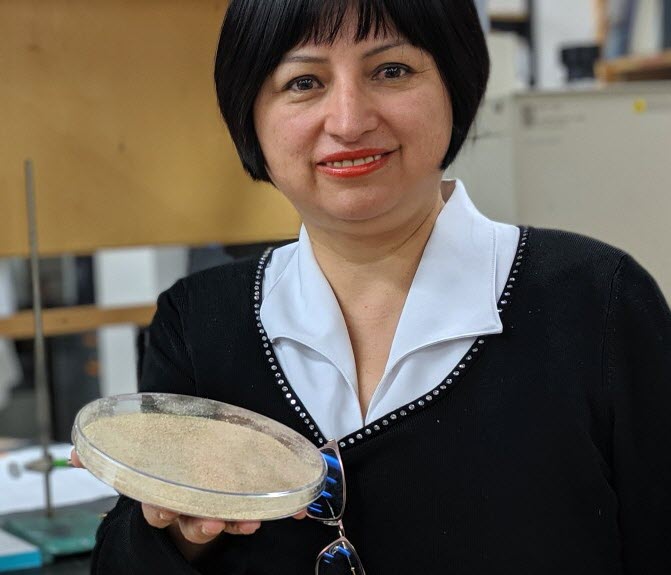An Alberta researcher is using canola to strengthen cling wrap
By Diego Flammini
Staff Writer
Farms.com
An Alberta researcher has found a unique way to use Canadian canola.
Marleny Saldaña, an associate professor in food and bio-engineering processing at the University of Alberta, discovered that fibres created from canola straw can help improve the durability of a cling wrap used for food.
The cling wrap made from canola is about 12 times stronger than the product Saldana and her team developed using cassava starch and damaged potatoes, the researchers predict.

Marleny Saldaña/Sean Townsend photo
The Senate committee on agriculture and forestry recently released a report on how to improve Canada’s value-added food industry. This application of canola is one example of processing food that’s grown here.
“We have the capacity here for processing canola in Canada to create more industry and high-value products like cellulose nanofibers from canola straw,” Saldaña said in a July 18 statement. “The straw remains underexplored, but the product potential is huge.”
A new use for canola would also help producers manage a current trade issue.
China has yet to reallow imports of Canadian canola, so using the crop to create another product could provide farmers with another marketing strategy.
Transforming canola into a biodegradable plastic wrap can also help reduce pollution.
About 8 million metric tonnes of plastics enter the oceans each year, Ocean Conservancy says.
Scientists have a duty to find ways of removing plastic from the environment, Saldaña said.
“We have a huge problem with the millions of tonnes of plastics that are produced; landfilling isn’t possible anymore as much of it winds up in our oceans, so we need to look for new alternatives to produce these types of materials for a wide range of applications,” she said.
Farms.com has reached out to Saldaña and to the Canola Council of Canada for comment.